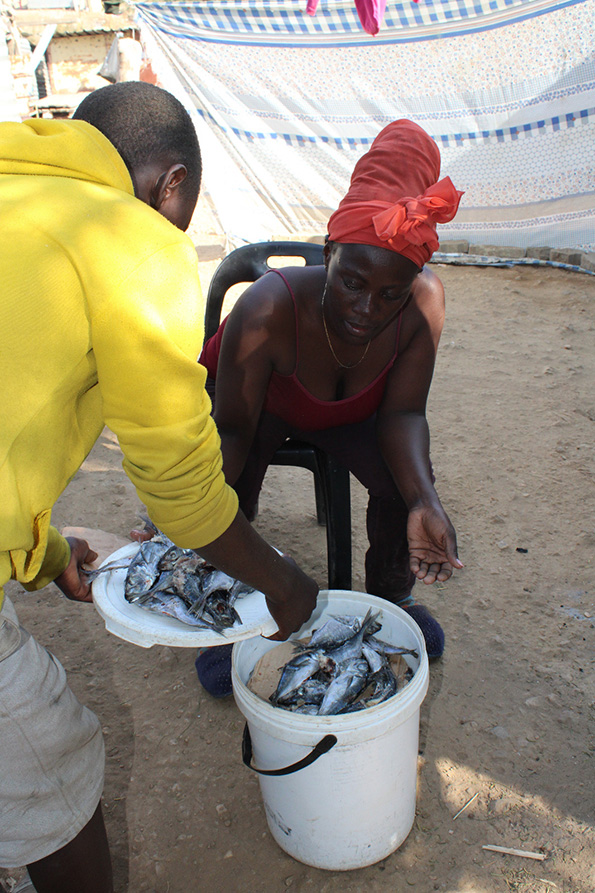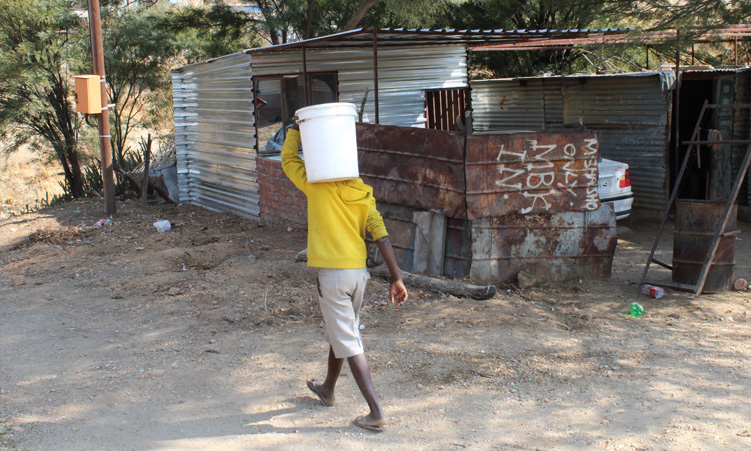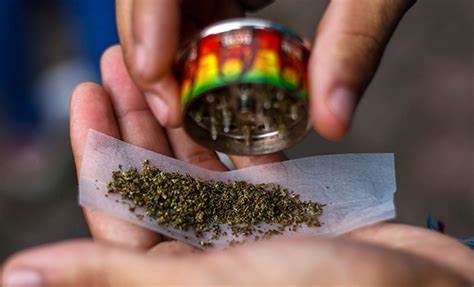At the age of sixteen, Simon* came to Windhoek for the first time in 2021, leaving behind his family in Omupa, a village in southern Angola.
Upon his arrival, his former boss paid the bus fare and Simon became a street vendor selling fish on his second day in Windhoek.
Simon says he thought being a vendor would change his life, believing he came to Windhoek for greener pastures and hoping to make money to help his family back home. However, he experienced the opposite of his dreams coming true.
“I worked for my former boss for over two years and he never paid my salary we agreed on. He promised to pay me when I returned home, but never did,” Simon says.
On some days, he would go to bed hungry.His boss, also from Angola, would get angry when he did not sell the fish, and abused him physically, he says.
“I made about N$300 to N$500 per day by selling fish in a bucket. I would get up very early to go buy the fish at the fish shop at Oshitenda, fill up the bucket and head off to the streets of Windhoek’s informal settlements; sometimes I would find myself at Havana,” he says.
He lived at Okahandja Park, a residence where other vendors live.
Simon says he sometimes does not even have toiletries to keep himself clean.
Last August, he stopped working for his former boss, received some money from an independent vendor to start trading his own fish, and managed to make N$1 000.
“I was able to go back home to see my parents and siblings. Although I didn’t have much, they were happy to see me,” he says.

Simon told The Namibian he fears his parents dying.
Simon, now 19, returned to Windhoek a week ago, saying he has learnt a lesson and is now old enough to stand up for himself.
He says he has tried to get back on the streets to earn a few dollars, however, he has not yet saved enough to be able to buy stock.
When asked about the risks involved with illegal trading on the street, he says he sells in the settlements and not on the road and areas where vendors are prohibited to trade.
Ministry of Home Affairs, Immigration, Safety and Security spokesperson Margaret Kalo says Angolans illegally entering Namibia has been an ongoing occurrence which both governments are aware of.
Both governments have made efforts to ensure that these immigrants are cared for, while some are repatriated back to Angola.
Ministry of Gender Equality, Poverty Eradication and Social Welfare spokesperson Lukas Haufiku says the ministry’s stance on child labour aligns with the provisions of the Child Care and Protection Act.
This act ensures that the rights of children, as outlined in the Namibian Constitution and international agreements, are upheld and prioritises the interests of children.
In Namibia, child labour is strictly prohibited by law, as it is in the rest of the world.
Engaging children in labour is punishable under the law.
Haufiku says the government has taken proactive measures to address trafficking by enacting laws such as the Combating of Trafficking in Persons Act. This legislation provides legal measures to combat trafficking and protect victims.
The public should be informed about the national trafficking in person hotline, which can be reached at 10111 or 106, and is encouraged to report any suspicious activities or cases related to trafficking, like Simon’s case, Haufiku adds.
- Not his real name
Stay informed with The Namibian – your source for credible journalism. Get in-depth reporting and opinions for
only N$85 a month. Invest in journalism, invest in democracy –
Subscribe Now!






